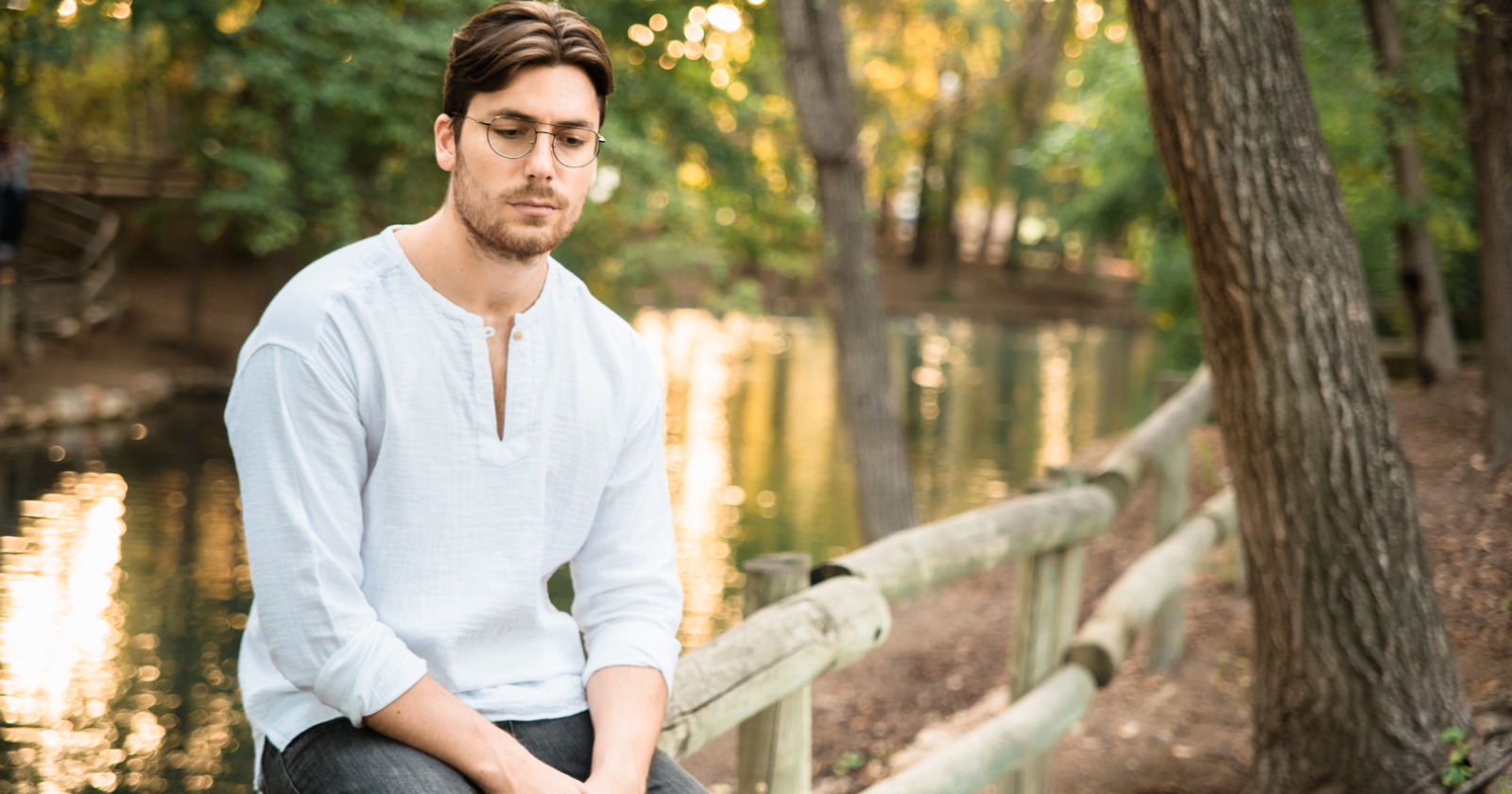As we age, it’s no secret that things change. We may not interact with the world in the same ways we used to, which can lead to feelings of disconnection and loneliness.
But here’s the thing: it’s not a given. It’s often a result of certain behaviors that we unwittingly adopt as we get older.
So, what are these behaviors? And more importantly, how can we identify and change them to avoid feeling increasingly isolated in our later years?
That’s what we’re going to explore today. We’ll delve into eight classic behaviors that people who become more lonely and disconnected fall into as they age.
And I’ll give you some insights on how, by recognizing these behaviors, we can take steps to stay connected, engaged and vibrant at any age.
Because at the end of the day, it’s not just about how old you are – it’s about how you’re old. And that’s something within our control.
1) Withdrawing from social activities
Growing older often comes with changes in our lifestyle. Some of these changes are inevitable, but sometimes, we unwittingly contribute to our own isolation.
One common behavior is gradually withdrawing from social activities. You might think that you’re just getting tired or losing interest in certain activities. But it’s more than that.
It’s not just about the activity itself; it’s about the people, the interaction, the connection. When we start to pull away from these social engagements, we start to lose those connections.
And that’s when loneliness creeps in.
But here’s the good news: recognizing this behavior is the first step in addressing it. Just because you’re getting older doesn’t mean you have to stop engaging with the world.
In fact, staying socially active can help keep you vibrant and connected.
Next time you find yourself declining invitations or avoiding social gatherings, ask yourself why. Is it really because you’re not interested? Or are you withdrawing without even realizing it?
Staying connected is a choice we can make at any age.
2) Failing to adapt to technology
Here’s something I’ve noticed with my own grandmother as she’s gotten older: a growing resistance to technology.
When we first got her a smartphone, she was excited. But as technology advanced, she started feeling overwhelmed.
Updates and new apps became a source of stress rather than convenience.
Instead of learning how to use them, she started avoiding them. And that meant fewer video calls with family, less interaction on social media, and less connection with the world at large.
This isn’t just about staying up-to-date with technology; it’s about staying connected.
When we resist technological advances, we can unintentionally isolate ourselves from the world and the people in it.
Next time you find yourself avoiding new tech or feeling overwhelmed by it, take a step back, take a deep breath, and try to learn one new thing.
Just one. It could be as simple as learning how to video call or send a text message.
Staying open to new things is a choice we can make at any age.
3) Neglecting physical health
As we age, our bodies naturally change. It’s part of the process. But sometimes, we don’t do ourselves any favors by neglecting our physical health.
Did you know that physical exercise has been shown to improve mental well-being and decrease feelings of loneliness? It’s true.
Regular exercise can help reduce symptoms of depression and anxiety, improve mood, and boost self-esteem.
As people get older, there’s a tendency to reduce physical activity. This can lead to a decline in overall health, which in turn can contribute to feelings of disconnection and isolation.
If you’re feeling lonely or disconnected, try getting up and moving around.
Whether it’s a walk around the block, a yoga class, or just some light stretching at home, every bit counts.
Taking care of our physical health is a choice we can make at any age.
4) Avoiding new experiences

Change can be scary. It’s something we all grapple with, especially as we age.
But when we avoid new experiences, we can unintentionally create a bubble around ourselves, leading to feelings of disconnection and loneliness.
Maybe it’s a new hobby, or a trip to a place you’ve never been before; maybe it’s trying a new type of cuisine or attending an event in your community.
Not every experience will be your cup of tea, but each one adds a bit of color to your life tapestry.
Next time an opportunity for a new experience comes your way, don’t shy away.
Say yes and see where it takes you.
Embracing change and seeking out new experiences is a choice we can make at any age.
5) Neglecting emotional health
Growing older can sometimes bring a wave of emotions. You might feel a sense of loss for your younger years, or anxiety about the future.
Neglecting to address these emotions can lead to feelings of loneliness and disconnection.
Our emotional health is just as important as our physical health. We need to allow ourselves to feel, to grieve, to celebrate, and to embrace every emotion that comes our way.
There’s a certain strength in vulnerability, in sharing our feelings with others. It allows us to connect on a deeper level, building stronger, more meaningful relationships.
Don’t bottle up your feelings. Seek support when you need it, whether it’s from a trusted friend, family member, or professional.
You’re not alone, and you don’t have to feel alone.
Taking care of our emotional health is a choice we can make at any age.
6) Falling into a routine
Routines can be comforting. They give structure to our days and provide a sense of familiarity. But there’s a fine line between a routine and a rut.
I found myself falling into this trap a few years ago. I’d wake up, go to work, come home, eat dinner, watch TV, and go to bed. Day in, day out. It was comfortable, yes, but it was also incredibly isolating.
I realized that my routine had become my world, and in the process, I was shutting out everything—and everyone—else.
Breaking away from this cycle wasn’t easy. It took effort and determination to introduce new activities into my schedule, to say yes to social invitations even when I just wanted to stay home.
But it was worth it. I found myself feeling more connected, more engaged with the world around me.
Take a look at your own routine. Is it serving you well? Or is it keeping you isolated?
Breaking away from isolating routines is a choice we can make at any age.
7) Holding on to grudges
Life has a way of throwing curveballs, and sometimes, those curveballs can lead to conflict.
But holding on to grudges can weigh heavy on your heart and contribute to feelings of disconnection and loneliness.
Grudges tie us to the past, preventing us from moving forward. They create barriers between us and the people we once cared for, which can lead to isolation.
Letting go of grudges is not about forgetting or condoning what happened. It’s about freeing yourself from the burden of resentment and opening up space for connection.
If you’re holding onto a grudge, consider whether it’s serving you. Is it worth the loneliness, the disconnection? Or is it time to let go?
Letting go of grudges is a choice we can make at any age.
8) Forgetting the importance of human connection
At the end of the day, we are social creatures. We thrive on connection, on shared experiences, on love and friendship.
But as we age, it’s easy to forget just how important these connections are.
It’s not about how many friends you have or how often you go out.
It’s about the quality of your relationships, the depth of your connections.
Human connection is the antidote to loneliness. It’s what keeps us engaged, vibrant, and alive, no matter our age.
Reach out to a friend. Join a club or group. Connect with people around you.
Final thoughts: It’s about choice
There’s a profound truth about human nature that we all need to understand: We are inherently social creatures. Our connections with others play a crucial role in our overall well-being.
As we age, it’s easy to fall into patterns that lead to isolation and disconnection. But the beauty of being human is that we have the power of choice.
We can choose to stay engaged, to stay connected, to continue growing. We can choose to reach out, to learn new things, and to take care of our physical and emotional health.
Aging is inevitable. But how we age—how we choose to navigate the journey—is in our hands.
Making choices that foster connection and engagement is something we can do at any age.
Because at the end of the day, it’s not just about living longer—it’s about living better.









